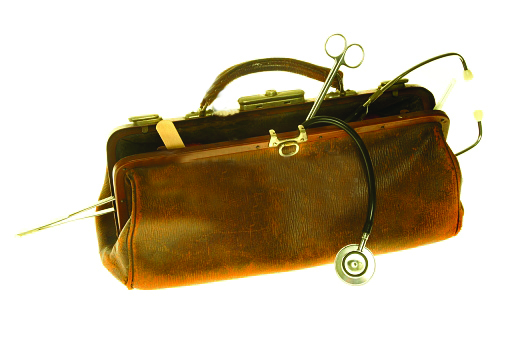
by Alan Kronhaus, MD, Co-Founder & CEO, Doctors Making Housecalls
Not long ago, few senior communities would entertain the idea of onsite medical care. But times change, and the health care needs of seniors residing in assisted and even independent living communities resemble those who, 20 years ago, would have gone to a nursing home. As a result, senior communities are collaborating in one way or another with medical e6practices to establish onsite care for their residents. They are evolving from a purely “social” model of service to a more appropriate and effective “integrated” model, wherein facility personnel take a more active role in helping residents meet their health care needs.
Onsite medical care, also known as “housecalls” or by the more formal designation “home-based primary care,” benefits senior communities and their residents in many ways. It eliminates the barriers to access which make it difficult for seniors to “connect” with their physician. That, in turn, encourages residents to see their health care provider often and in detail. Frequent, unhurried visits allow clinicians to provide care that is proactive and prevention-oriented rather than reactive and crisis-oriented — the way health care is typically provided today.
The fact that home-based care produces better outcomes, both clinical and financial, is well documented in the academic literature and lay press: Patients no longer lurch from crisis to crisis, emergency room visits and hospitalization rates plummet, and costs are reduced dramatically. Care is also better coordinated because the residents’ personal physician “quarterbacks” the entire health care team, including the subspecialists or home health agency personel which may be involved in the patients’ care.
Onsite care is also tranformational for family and facility caregivers. Family caregivers no longer have to wait interminably to get an appointment for their loved one, then take time off from a hectic schedule to provide transportation to the doctor’s office. Facility caregivers no longer have to cajole a doctor’s office to see residents in a timely manner, or fight to get orders signed, care plans approved, medication records reviewed or FL-2s renewed. The community’s responsibility and liability for transporting patients to doctor’s offices all over town is also greatly reduced.
Leading the housecall revolution in North Carolina AL communities is Doctors Making Housecalls (“DMH”), a rapidly growing medical group practice of 55 clinicians providing onsite care in more than 150 assisted and independent living communities in the greater Charlotte area and across the state. They visit the communities they serve on a regularly scheduled basis – once, twice or even three times a week depending on the size of their practice in the community. In addition to seeing patients who choose DMH as their primary care provider, DMH clinicians also interact extensively with facility personnel. They fully appreciate that facility personnel are not only a valuable source of clinically-relevant information about their residents, they are integral members of the DMH health care team.
Onsite care is not only more convenient, it is also more comprehensive than care provided in the typical medical office. The practice contracts with reference laboratories and a medical imaging service to obtain any test or procedure the patient requires, without the patient having to leave the community – with the obvious exception of CT and MRI scans.
DMH clinicians glean a great deal of valuable clinical information from the patient’s environment. For example, they can identify and correct potential problems such as tripping or slipping hazards, and determine not only what medications are prescribed for the patient, but what medications the patient is actually taking. Because patients are more relaxed and comfortable in their own environment, they tend to be more forthcoming in the information they convey to their health care provider, which helps clinicians diagnose and treat more effectively.
One of the best features of onsite care is that the it costs residents no more than what it costs to access care in the usual office or institutional settings; in fact, it costs less, because residents are much less vulnerable to the high deductibles and copays for services provided in urgent care clinics, emergency rooms and acute care hospitals.
Finally, DMH’s pioneering practice model enables senior communities to become responsible participants in health system initiatives designed to provide “higher value care.” By helping to improve quality and reduce costs, senior communities who arrange onsite care for their residents can expect to garner more referrals from hospital discharge planners, and keep their residents aging in place with as much dignity and independence as possible, as long as possible – postponing or even precluding transfer to the nursing home toward the end of life.



